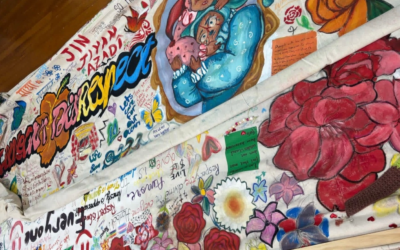On the 26th of November 2024, the National Disability Insurance Agency (NDIA) announced they no longer classify music and art as a therapy support. The NDIA is a statutory agency within the Australian government that provides services to people with a variety of disabilities, including the National Disability Insurance Scheme (NDIS). The NDIS funds support therapies for people who are eligible in order to improve their quality of life. It was proposed NDIS participants no longer have the same level of access to music and art therapy as of February 2025.
Since then, Western Sydney University has advocated for the reversal of this decision. Western’s News Centre posted a response the very next day emphasising the importance of music therapy, criticising the decision to deprioritise music and art as a therapeutic practice, and breaking down the impact it would have on Western students.
There are only two accredited music therapy training programs in Australia, the University of Melbourne and Western Sydney University. Western proudly teaches their 2-year Master of Creative Music Therapy at the Kingswood Campus. This program is accredited, and graduates of the program are eligible to apply to register with the Australian Music Therapy Association (AMTA), which qualifies alumni to practice professionally in Australia as a Registered Music Therapist (RMT).
This program has qualified many students, leading to practice as RMTs, working with people with various disabilities in an extensive range of age groups. Master of Creative Music Therapy Academic Program Advisor (APA) Doctor Allison Fuller stated:
“Our graduates are highly trained, career-ready professionals on the completion of this master’s degree. They are out there doing evidence-based work, as allied health professionals, using music as a tool to assist NDIS participants to maintain and develop functional capacity skills.”

Plaque outside of the MusicTherapy@Western Centre. Photo taken by Bailey Anderson, 2024
Western’s own music therapy centre is in Building E at the Kingswood campus, previously called the Golden Stave Music Therapy Centre. This provides postgraduate students with experience working with individuals and small groups of all ages. The centre is open on Thursdays, Fridays and Saturdays, and its objective is to improve cognition, communication, movement, social engagement and emotional well-being in clients.
Monica Zidar, the President of the Australian Music Therapy Association (AMTA) stated, “In the midst of the current challenges that AMTA and the music therapy community is facing, the universities offering our master’s degree, like Western, continue to play a pivotal role in equipping future music therapy professionals with the skills and knowledge needed to navigate and support the evolving needs of the sector. Their commitment to fostering innovation and excellence ensures our graduates are well-prepared to make a meaningful difference in the lives of the individuals and families they will soon be supporting.”
Therefore, these new limitations posed by the NDIS would threaten funding for the program, reduce practical placement opportunities for students, and risk decreasing employment for graduates.
The AMTA described the proposed changes as “unfair and unfounded”. They have stated the decision would “devastatingly affect over 8,000 families across Australia.”
The NDIA’s decision, following immense protesting, is now under review. On the 13th of December they announced the changes have been deferred until July, 2025. “We look forward to the review,” said Dr. Fuller, “and the ongoing growth of the profession through this process.” It is WSU’s hope that they retract the changes and maintain the provision of music and art therapy for NDIS participants.



